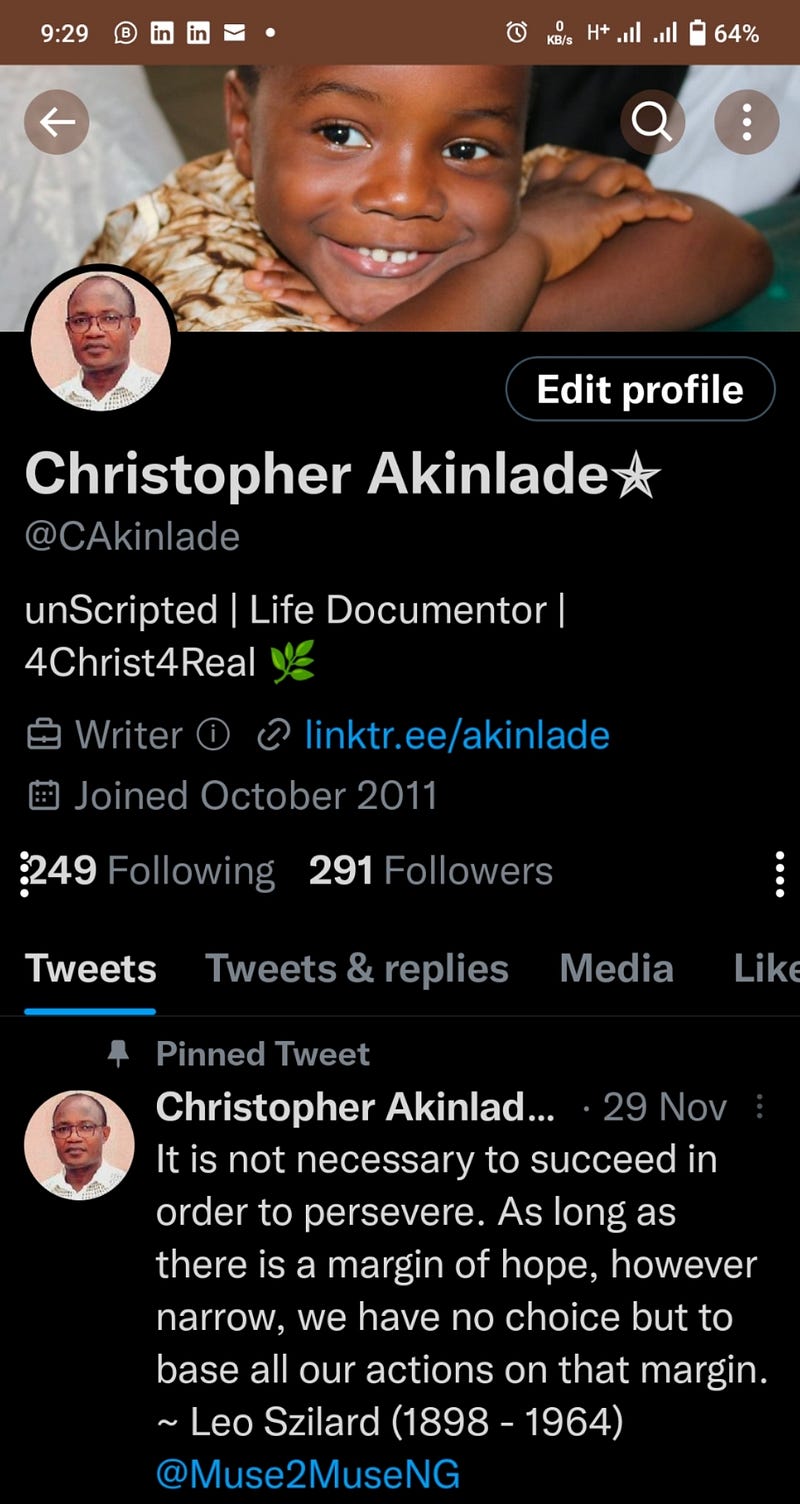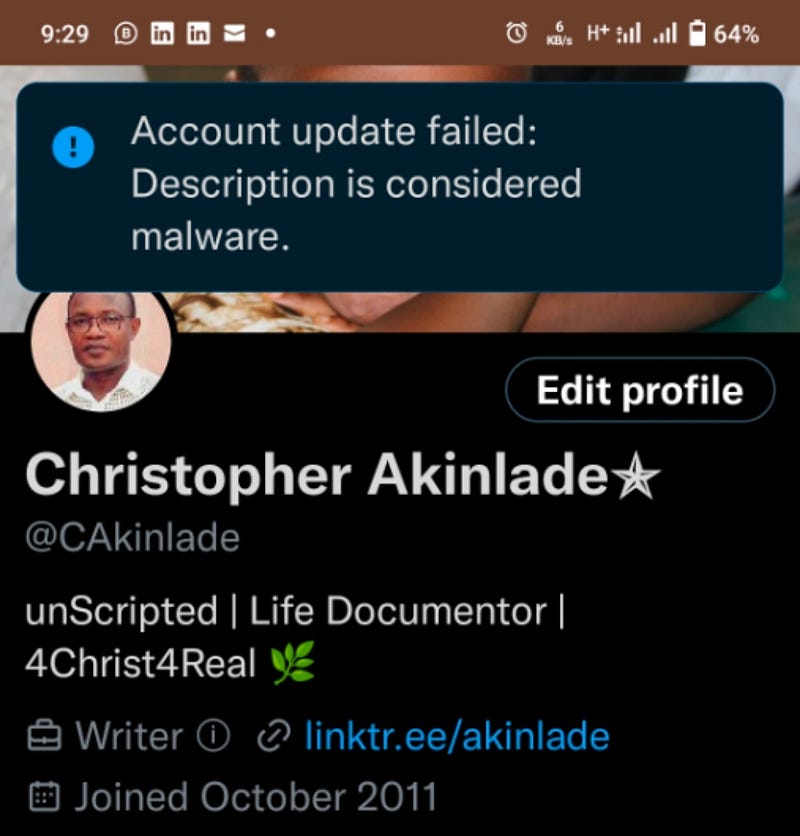Navigating the Shift from Twitter to Mastodon: A New Era in Social Media
Written on
Chapter 1: The Turbulent Landscape of Twitter
Since Elon Musk took the helm at Twitter, a host of turbulent changes have unfolded. His leadership style has sparked widespread concerns, as many fear that his unchecked power could lead to negative consequences for users.
"All power corrupts, and absolute power corrupts absolutely." — Lord Acton (1834–1902)
With a series of controversial decisions, including massive layoffs and the dismissal of engineers who refuse to comply with his demands, Twitter has transformed from a go-to platform for businesses to a risky environment for brands. A notable incident involved Eli Lilly, whose account was impersonated, resulting in a significant drop in stock prices.
As news of Musk's actions circulates, many users are opting to leave Twitter, with Mastodon emerging as a favored alternative for those seeking refuge from the chaos. Personally, I felt compelled to establish a "backup" account even before Musk's acquisition was finalized, and my research led me to Mastodon as a promising option.
Transitioning to Mastodon was initially challenging, but as I grasped the concept of "one Mastodon, many servers," my appreciation for the platform grew substantially. I even documented my first experiences navigating Mastodon.
In recent reports from outlets like The Verge, several prominent journalists faced account suspensions, and news emerged about Twitter's ban on Mastodon links, which can no longer be added to users' profiles.

Before the ban, my Twitter profile showcased my Mastodon link. Following the new restrictions, attempts to add it resulted in error messages indicating that the description was deemed "malware."

In light of these developments, I streamlined my links using Linktree, consolidating my Medium and Substack accounts into a single, efficient link.
Just like that, Twitter marked Mastodon links as unwelcome. It reminds me of a time when a friend panicked over rumors of WhatsApp shutting down, to which I assured him that alternative platforms like Telegram and Signal would remain available.
Now, I find myself preferring Mastodon over Twitter. I also revived my previously dormant Reddit account, enjoying both platforms more than ever. Some of my posts on Reddit have even inspired new content for Medium and Substack.
I conducted a poll on Reddit to gauge reactions to a hypothetical scenario where users could no longer access Twitter. Personally, I wouldn't miss it much.
For some, leaving Twitter may pose challenges due to their extensive follower base, as the platform has become integral to their marketing and communications strategies. A sudden exit could lead to significant losses.
Having distanced myself from the often toxic environment of Twitter, I now find Mastodon and Reddit to be far more engaging and beneficial for my productivity. To avoid the risks associated with a volatile CEO, I recommend diversifying your social media presence.
Thank you for reading my insights. I invite you to share your own experiences on Mastodon and Reddit.
The first video titled "5 Reasons to DITCH TWITTER For Mastodon!" discusses the key motivations for transitioning from Twitter to Mastodon, highlighting the benefits of choosing a decentralized platform over the increasingly centralized Twitter.
The second video, "Exposing the Website that Stalks You in Discord!" reveals privacy concerns related to social media platforms, emphasizing the importance of understanding the platforms we engage with.
Join me in exploring this new chapter on Mastodon!